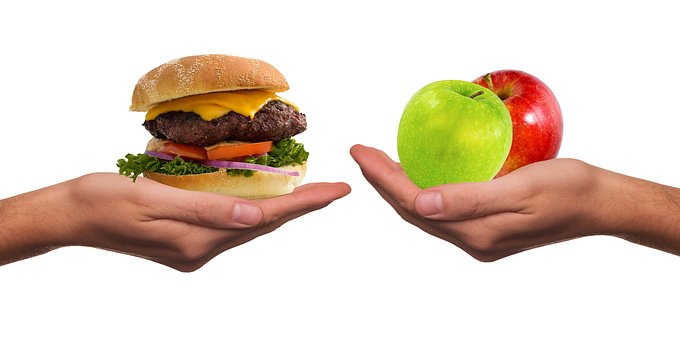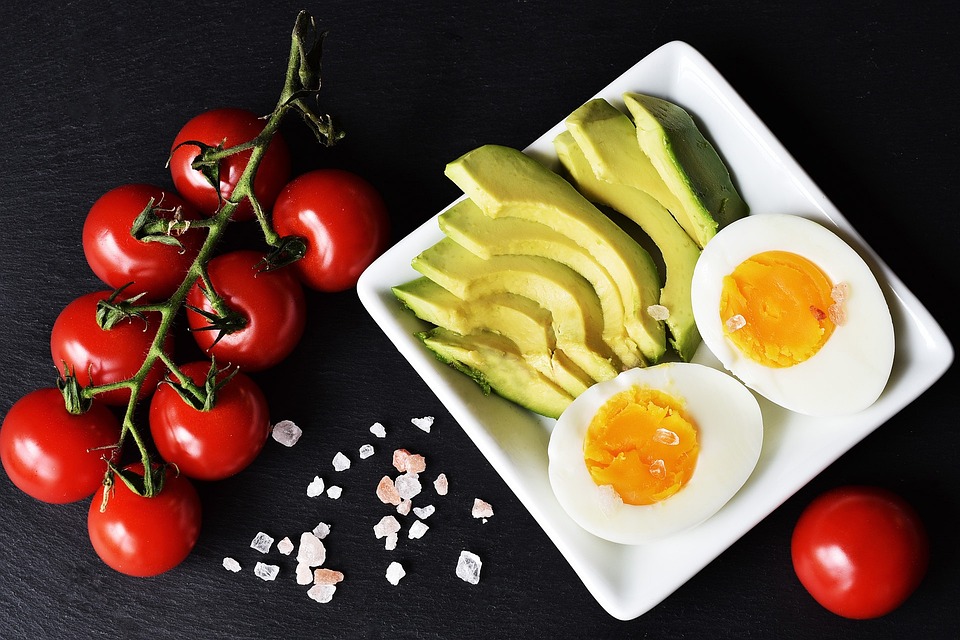
There are a lot of diets, supplements, and meal replacement plans that claim to make you lose weight quickly, but most of them don’t have any scientific evidence to support them. There are some strategies that have been proven to work by science, though.
Some strategies for losing weight include working out, paying attention to how many calories you’re consuming, fasting for periods of time, and reducing the amount of carbs in your diet.
We explore nine methods of weight loss to see which are most effective.
- Trying intermittent fasting
It is also known as time-restricted feeding. Intermittent fasting is an eating pattern that involves regular short-term fasts and consuming meals within a shorter time period during the day. It is also known as time-restricted feeding.
Several studies have indicated that overweight individuals who fast for short periods of time will lose weight.
The most common intermittent fasting methods include the following:
- Alternate day fasting (ADF): Fast every other day and eat normally on non-fasting days. The modified version involves eating just 25–30 percent of the body’s energy needs on fasting days.
- The 5:2 Diet: Fast on 2 out of every 7 days. On fasting days eat 500–600 calories.
- The 16/8 method: Fast for 16 hours and eat only during an 8-hour window. For most people, the 8-hour window would be around noon to 8 p.m. A study on this method found that eating during a restricted period resulted in the participants consuming fewer calories and losing weight.
On days when you’re not fasting, it’s best to eat healthy foods and to avoid overeating.
- Tracking your diet and exercise
In 2017, researchers estimated that there would be 3.7 billion health app downloads by the end of the year. The most popular types of apps were ones for diet, physical activity, and weight loss. This makes sense because tracking your physical activity and weight loss progress on the go can be an effective way to manage your weight.
The findings of one study indicated that those who keep track of their physical activity levels tend to be more successful at losing weight. A separate study which reviewed a number of related studies found evidence to support the idea that weight loss is more likely to occur when food intake and exercise are monitored on a regular basis. Even something as simple as a pedometer (a device used to count steps taken) can be helpful in achieving weight-loss goals.
- Eating mindfully
Mindful eating is all about being aware of how and where you’re eating your food. It can help you to appreciate your food more and keep a healthy weight.
Techniques for mindful eating include:
- Sitting down to eat, preferably at a table: Pay attention to the food and enjoy the experience.
- Avoiding distractions while eating: Do not turn on the TV, laptop, or phone.
- Eating slowly: Take time to chew and savor the food. This technique helps with weight loss, as it gives a person’s brain enough time to recognize the signals that they are full, which can help to prevent over-eating.
- Making considered food choices: Choose foods that are full of nourishing nutrients and those that will satisfy for hours rather than minutes.
- Eating protein for breakfast
Protein helps to regulate the hormones that control how full a person feels. This is because protein causes a decrease in the hunger hormone ghrelin and an increase in the satiety hormones peptide YY, GLP-1, and cholecystokinin.
Studies on young adults have shown that the hormones released from eating a protein-rich breakfast can have effects that last for several hours.
Some good examples of high-protein breakfast foods are eggs, oats, nut butter, quinoa porridge, sardines, and chia seed pudding.
- Cutting back on sugar and refined carbohydrates
The Western diet is becoming more and more full of added sugars, and this is definitely causing obesity, even when the sugar is in drinks instead of food.
Refined carbohydrates are processed foods that have had the fiber and other nutrients removed. Examples of refined carbohydrates include white rice, bread, and pasta.
The foods listed digest quickly and convert to glucose rapidly.
Glucose that isn’t used by the body is stored in the adipose tissue, which leads to weight gain.
Where possible, people should swap processed and sugary foods for more healthful options. Good food swaps include:
- whole-grain rice, bread, and pasta instead of the white versions
- fruit, nuts, and seeds instead of high-sugar snacks
- herb teas and fruit-infused water instead of high-sugar sodas
- smoothies with water or milk instead of fruit juice
- Eating plenty of fiber
Fiber is found in foods such as fruits, vegetables, and whole grains. Dietary fiber refers to plant-based carbohydrates that cannot be digested in the small intestine, as opposed to sugar and starch. Eating plenty of fiber can make you feel fuller, which may lead to weight loss. Fiber is found in foods such as fruits, vegetables, and whole grains.
Fiber-rich foods include:
- whole-grain breakfast cereals, whole-wheat pasta, whole-grain bread, oats, barley, and rye
- fruit and vegetables
- peas, beans, and pulses
- nuts and seeds
- Balancing gut bacteria
There is some research being done on the role of gut bacteria in weight management.
The human gut contains approximately 37 trillion bacteria.
Different people have different mixers of bacteria in their guts, and some types of bacteria can help a person to get more energy from the food they eat, which can cause them to gain weight.
Some foods can increase the number of good bacteria in the gut, including:
- A wide variety of plants: Increasing the number of fruits, vegetables, and grains in the diet will result in an increased fiber uptake and a more diverse set of gut bacteria. People should try to ensure that vegetables and other plant-based foods comprise 75 percent of their meals.
- Fermented foods: These enhance the function of good bacteria while inhibiting the growth of bad bacteria. Sauerkraut, kimchi, kefir, yogurt, tempeh, and miso all contain good amounts of probiotics, which help to increase good bacteria. Researchers have studied kimchi widely, and study results suggest that it has anti-obesity effects. Similarly, studies have shown that kefir may help to promote weight loss in overweight women.
- Prebiotic foods: These stimulate the growth and activity of some of the good bacteria that aid weight control. Prebiotic fiber occurs in many fruits and vegetables, especially chicory root, artichoke, onion, garlic, asparagus, leeks, banana, and avocado. It is also in grains, such as oats and barley.
- Getting a good night’s sleep
People who sleep less than 6 hours a night were more likely to be obese. There are several reasons why this might be the case.
Not getting enough sleep, or having poor quality sleep, may make it harder for your body to turn calories into energy. When this happens, your body may store more of the calories as fat. Not getting enough sleep can also increase the amount of hormones in your body that store fat.
In contrast, ghrelin signals hunger. The amount of time someone spends sleeping also affects the way that the hormones that control appetite, leptin and ghrelin, are regulated. Leptin sends signals to the brain that tell it when someone is full, while ghrelin signals when someone is hungry.
- Managing your stress levels
Stress releases hormones that decrease appetite as part of the body’s fight or flight response.
However, when people are under constant stress, their bodies produce more cortisol, which will increase their appetite and potentially lead to them eating more.
Cortisol is a hormone that indicates when the body needs to replenish its energy stores. The body’s preferred source of fuel for this is carbohydrates.
Insulin transports sugar from carbohydrates in the blood to the muscles and brain. If the individual does not use this sugar, the body will store it as fat.
The researchers found that the 8-week stress management intervention program significantly reduced the BMI of overweight or obese children and adolescents.
Some methods of managing stress include:
- yoga, meditation, or tai chi
- breathing and relaxation techniques
- spending some time outdoors, for example walking or gardening
A Different Way to Think about Losing Weight
If the diet companies, the magazines, the TV shows, and so on told us how hard it will be to drop pounds instead of telling us how easy it can be, we might be better off in the world of weight loss.
Because here is weight loss in a nutshell:
- Eat less.
You should eat a daily calorie amount that 1.) doesn’t make you want to die, and 2.) allows for a reasonable energy deficit. Find out how many calories your body burns in a day without exercise, then eat 250 calories less than that. If you also burn 250 calories through exercise, you will be at a deficit of 500 calories per day, which should lead to 1 pound of weight loss per week.
- Move more.
This means that you should move around more often and in any way that your body enjoys. You should do this more than you currently do.
I find myself naturally drawn to the health sections of magazines and bookshelves at Barnes and Noble. There, I see headings with words like easy, simple, and fast, which weight loss will never be. I see meal plans that promise ‘no deprivation,’ ‘still indulge!,’ and ‘never feel hungry,’ which only make me resentful. It’s never easy, simple, or fast. Deprivation, that resentful feeling of not being able to indulge, and hunger pangs- they exist. Not always, but yes, sometimes.
I began losing weight because I was afraid that I would continue to get bigger and bigger until I reached a point where I would be too big. I thought that if I started losing weight now, I could avoid that. I was also motivated by the thought of all the good things that would come with being thin.
I started to feel bored with the whole process after awhile. I became less patient and vigilant and felt like I was stuck in the routine forever.
What happened next, just after I silently called myself a quitter, a loser, all manner of bad names, was a simple enough thought:
Oh, it’s just going to suck for a while.
I told myself that the journey would be difficult, but that it would end up being worth it in the end.
Now, I want to point out that weight loss for me didn’t just mean salads and steamed vegetables and boiled chicken. My own process, which is the one I’m advocating here, includes treats and moderation and being mindful while eating brownies. It wasn’t all bad- there werepositive moments of feeling great physically, and tremendous pride and confidence from reaching small goals.
Small changes to your diet can help you lose weight without feeling hungry. For example, you could have a small dessert each night or go for a walk instead of sweating on a treadmill. There is a way to lose weight without feeling miserable.
There were many times when I wanted to eat a lot of unhealthy food even though I knew it wasn’t good for me. I would sit in bed and watch TV and eat whatever I wanted. sometimes I would even try to eat an entire cake by myself.
If people acknowledged how difficult it is to maintain a healthy weight and lifestyle, we might have a more realistic approach. People would not set unrealistic goals because they would know they could not sustain them. For example, people would not try to survive on 800 calories a day because they would know it’s not sustainable in the long run. Additionally, people would not swear off entire food groups because they would realize it makes life less enjoyable.
If we knew the side effects, hardships, and hurdles of the journey beforehand, we might feel more prepared. More apprehensive, maybe, but prepared. Maybe we would be kinder to ourselves and others, knowing that it’s difficult, it’s long, and it can feel unforgiving. Maybe we would respect small triumphs- whatever they may be- knowing that they don’t come along every week, every month. Maybe we would be able to make good choices now, knowing that it could be harder or impossible to make them later, and maybe we just have to do the best we can, while we can. Maybe we would feel less overwhelmed by the nagging desire to quit trying, knowing that motivation comes and goes like the tide.














